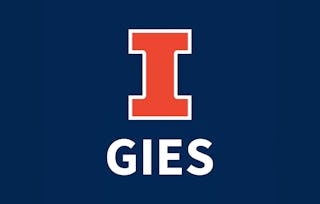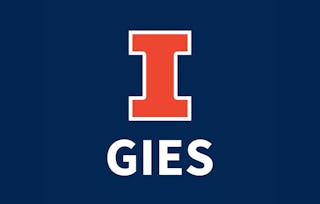In the third course, you will learn how to use information from cost accounting to improve managerial decision-making. We discuss business decisions and suggest how cost information can support them best. For example, how will costs change if managers adjust cost drivers? How many units do companies need to sell in order to avoid losses or to achieve a targeted profit? How can managers improve pricing or product programs with information from cost accounting?

Cost Accounting: Decision Making

Cost Accounting: Decision Making
This course is part of Cost Accounting Specialization



Instructors: Gunther Friedl
10,855 already enrolled
Included with
126 reviews
Recommended experience
What you'll learn
You will learn methods that help to figure out how costs will behave if you adjust produced or sold quantities.
You will learn how cost information can support business decisions best.
You will learn to distinguish costs that are relevant for business decisions from costs that are irrelevant.
Skills you'll gain
Details to know

Add to your LinkedIn profile
21 assignments
See how employees at top companies are mastering in-demand skills

Build your subject-matter expertise
- Learn new concepts from industry experts
- Gain a foundational understanding of a subject or tool
- Develop job-relevant skills with hands-on projects
- Earn a shareable career certificate

There are 3 modules in this course
Cost accountants want to support decision making. To do so, they should not only calculate current costs and income, but they should also be able to tell managers how costs might change depending on managers' decisions. "How would costs change if we produced more or less products? How would they change if we produce more or less variants of products? How would they change if we increase the quality of our products?" Cost functions help to answer these questions and in this module, we make you familiar with them. First, we show you some typical cost functions and, second, we introduce a variety of methods that cost accountants can use to determine cost functions. Finally, we show you how accountants can document cost forecasts.
What's included
8 videos6 readings5 assignments2 plugins
When companies consider offering a new product, they might want to know how many units they need to sell in order to avoid losses or to achieve a targeted profit. Cost-volume profit analysis is a simple tool that helps answer these questions. It illustrates how costs, revenues, and profits depend on sold quantities.
What's included
9 videos1 reading10 assignments1 plugin
In the beginning of this course, you learned that companies use Cost Accounting to support managers' decision-making. In this module, we outline some business decisions and discuss how cost information can support them best. For example, we discuss pricing decisions and product-mix decisions under capacity constraints.
What's included
11 videos4 readings6 assignments1 plugin
Earn a career certificate
Add this credential to your LinkedIn profile, resume, or CV. Share it on social media and in your performance review.
Instructors

Offered by
Explore more from Finance
 Status: Free Trial
Status: Free Trial Status: Free Trial
Status: Free Trial Status: Free Trial
Status: Free TrialUniversity of Illinois Urbana-Champaign
 Status: Free Trial
Status: Free TrialUniversity of Illinois Urbana-Champaign
Why people choose Coursera for their career

Felipe M.

Jennifer J.

Larry W.

Chaitanya A.
Learner reviews
- 5 stars
85.03%
- 4 stars
12.59%
- 3 stars
1.57%
- 2 stars
0.78%
- 1 star
0%
Showing 3 of 126
Reviewed on Aug 15, 2025
Very Good and explanation made easy understanding
Reviewed on Mar 9, 2022
This course has everything a well-done course should have! Very good recordings, great quizzes and interesting readings.
Reviewed on Jul 14, 2022
Follows my impression of the high quality Germany is known for. Clear, to the point, step by step.

Open new doors with Coursera Plus
Unlimited access to 10,000+ world-class courses, hands-on projects, and job-ready certificate programs - all included in your subscription
Advance your career with an online degree
Earn a degree from world-class universities - 100% online
Join over 3,400 global companies that choose Coursera for Business
Upskill your employees to excel in the digital economy
Frequently asked questions
To access the course materials, assignments and to earn a Certificate, you will need to purchase the Certificate experience when you enroll in a course. You can try a Free Trial instead, or apply for Financial Aid. The course may offer 'Full Course, No Certificate' instead. This option lets you see all course materials, submit required assessments, and get a final grade. This also means that you will not be able to purchase a Certificate experience.
When you enroll in the course, you get access to all of the courses in the Specialization, and you earn a certificate when you complete the work. Your electronic Certificate will be added to your Accomplishments page - from there, you can print your Certificate or add it to your LinkedIn profile.
Yes. In select learning programs, you can apply for financial aid or a scholarship if you can’t afford the enrollment fee. If fin aid or scholarship is available for your learning program selection, you’ll find a link to apply on the description page.
More questions
Financial aid available,


